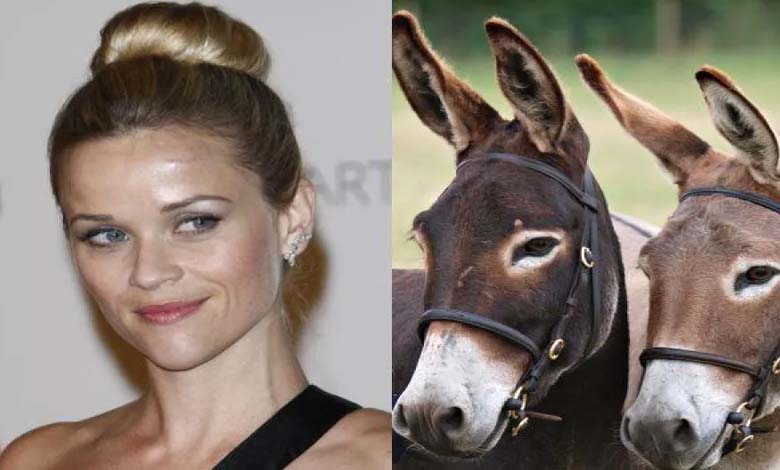Celebrities and Owning Wild Animals: A Rare Hobby or a Showoff?

The discovery of a lion and a group of fierce dogs inside the villa of a famous Egyptian businessman in the Maadi district of Cairo has raised questions about the growing trend of public figures, artists, and social media influencers owning wild animals, despite the inherent dangers.
-
Predatory Animals: Effective Alternatives to Insecticides
-
Why do the sizes of animals shrink over time?
It was revealed that the Egyptian businessman, who owns a series of tourist resorts, showed great care for the 11-month-old lion, to the extent that he was deeply saddened when it was handed over to the “Wildlife” administration of the Ministry of Agriculture.
Such incidents are immediately referred to the public prosecution for investigation as they fall under the penal code.
-
Cats accused of killing 1.5 billion animals annually… Details
-
Mystery wolf sparks fear in the Netherlands
There have been repeated instances where passersby or visitors to entertainment venues in various Arab countries are surprised by individuals accompanied by a wild animal, often causing panic, fear, and confusion.
This phenomenon raises questions about what motivates the owners of these animals: is it simply a desire to attract interaction on social media, or is it a means of boasting and showing off?
Actor Mohamed Ramadan is particularly controversial in this context, frequently appearing with lions, especially the “liger” or hybrid lion, whether in private videos or advertisements.
-
Tragedy in Libya: Lion devours child, authorities step in
-
After Reprieve from Execution, Female Bear Who Killed a Young Man is Relocated from Italy
Similarly, actor Ahmed Saad was seen holding a lion cub during one of his concerts as a form of suspense and event promotion. The audience was also surprised by a video showing actor Hamada Helal feeding a lion a piece of meat at a friend’s villa.
The Malaysian Primatological Society reports that at least 1,238 photos of wild or exotic animals have been posted online between October 2017 and May 2024.
-
Revealing the Identity of the Buyer of the Most Expensive Dinosaur Skeleton
-
Discovery of Brazilian Snake Reproducing Without Mating
According to research conducted by the society, most of the animals featured in celebrity photos are young, sometimes wearing “diapers” or gold collars encrusted with gemstones, including lions, tigers, baboons, foxes, bears, wolves, cougars, black panthers, as well as crocodiles.
Kuwaitis still remember the accidental discovery of crocodiles in the home of a Kuwaiti citizen when security authorities raided a horse stable in the Kabad area of Jahra Governorate as part of a campaign to search for unlicensed weapons. They were surprised to find a crocodile in the stable.
-
Saudi Research Center Witnesses Birth of First Twin Caracals
-
Damascus: Animal Arrival Delays Postpone Zoo Opening
Another incident sparked controversy recently when the Kuwaiti Environment Authority seized two “small crocodiles,” considered endangered species, from a well-known social media influencer known as “Aboudka.” He denied that the animals were crocodiles, claiming they were “two small lizards.”
Kuwaiti authorities state that wild animals enter the country through smuggling, with traffickers placing young animals in suitcases, making them difficult to detect. Most of these animals are brought from East Asian countries.
-
In a “Terrifying” incident, a huge crocodile swallows a woman
-
Just like humans, elephants call each other by names
Jordan is unique in the widespread practice of hunting wild animals, not just owning them by influencers and celebrities, as seen with “Hyam Awad,” known as the “hyena hunter,” who was legally pursued after posting widely popular videos documenting her capture of hyenas in the town of Dhiban, southern Jordan.
Owning wild animals often leads to tragic outcomes, as in the case of a Filipino maid working in Kuwait, who was killed in late 2014 after being attacked by a lion owned by the household where she worked.
-
“Stray Dogs”: A Phenomenon Causing Fear and Division in Turkey
-
Historic Ruling: Dog Breeding Company Fined $35 Million
The victim can also be the owner or caretaker themselves, as happened with a 22-year-old Saudi man who died from his injuries after being attacked by a lion he was raising in the Al-Sulay district of Riyadh.
A United Nations report estimates that the trade in wild animals, mostly predators, amounts to $29 billion annually, sold on the black market in countries such as Malaysia, Indonesia, the Philippines, Vietnam, as well as some African countries.
-
1.5-Meter Lizard Roams Florida Streets
-
Killer Whales Attack Couple’s Boat in the Strait of Gibraltar
Psychologists believe that those who own wild animals often lack a strong personality and try to compensate for it, in addition to boasting, love of excess, social luxury, and imitation.
Lisa Wathne, Director of Wildlife at the Humane Society of the United States, says, “It’s high ego and narcissism, clear and simple, especially when you see people holding tigers on their heads or giant snakes wrapped around their necks. There’s no doubt they think much more about themselves than the animals.”












